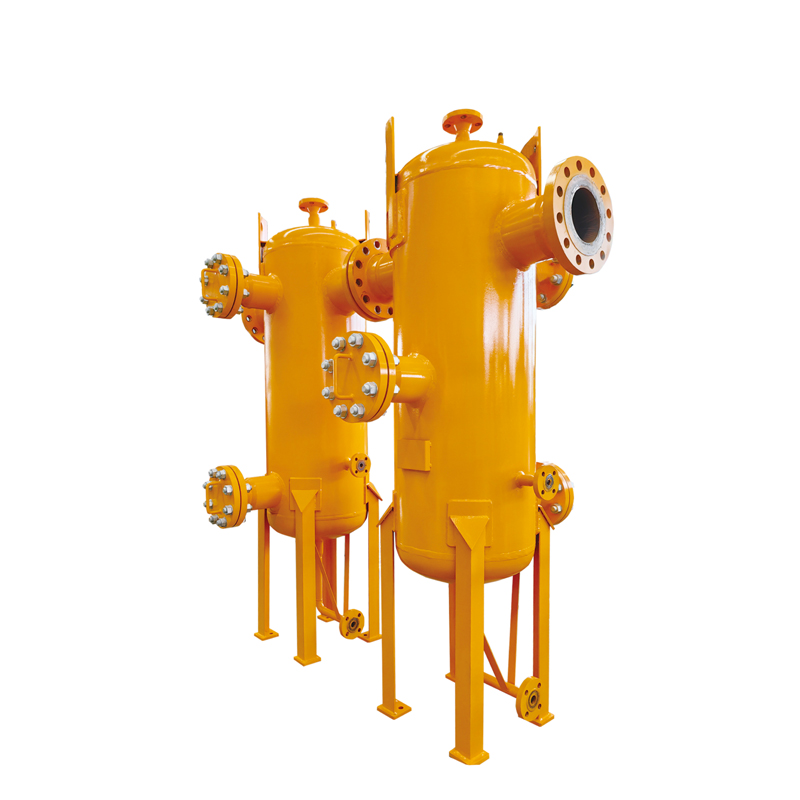
Dec . 11, 2024 10:36
Back to list
Gas Separation Technology for Efficient Filtration Solutions
Understanding Gas Filter Separators A Comprehensive Overview
Gas filter separators are critical components in the oil and gas industry, designed to improve the efficiency and safety of gas processing activities. These systems are specifically engineered to remove impurities from natural gas, such as solids, liquids, and aerosols, ensuring that the gas delivered for further processing or end use is clean and free from contaminants. Understanding the working principles, applications, and maintenance of gas filter separators is essential for professionals in the industry.
Working Principles
At the heart of a gas filter separator is a multi-stage separation process. The device typically consists of several components, including an inlet section, a filtering medium, a collection chamber, and various outlet points for the processed gas and separated liquids. When gas enters the separator, it flows through the inlet section where the velocity is reduced, allowing larger particles and liquids to settle out under the influence of gravity.
Once the bulk separation occurs, the gas moves through a filtering medium, which can be a coalescing filter or a mesh screen, depending on the design and application. This filter captures finer particles and liquid droplets, further purifying the gas before it moves to the outlet chamber. In the collection chamber, the separated liquids—such as water, oil, or other hydrocarbons—are drained away for further processing or disposal, while the clean gas exits for shipment or further treatment.
Applications
Gas filter separators are utilized in various stages of gas processing. They play a significant role in upstream operations, particularly in production facilities where raw gas is extracted from wells. Here, the separators ensure that the gas produced is free from impurities that could harm downstream equipment or reduce the efficiency of the gas processing operations.
gas filter separator

In transmission and distribution, these separators are crucial as well, helping to maintain gas quality in pipelines. They act as a safeguard against liquid carryover, which can cause issues in compressors and other mechanical systems. Additionally, gas filter separators are often employed in gas treatment facilities, where further purification processes, like drying and amine treating, are conducted.
Maintenance Considerations
Proper maintenance of gas filter separators is imperative to ensure optimal performance and longevity of the equipment. Regular inspections are essential to check for wear and tear, particularly on the filters and seals. Blocked filters can lead to increased pressure drops, reducing efficiency and potentially causing equipment failures. It is recommended to have a routine maintenance schedule that includes cleaning or replacing filters and checking the integrity of all components.
Moreover, monitoring the flow rates and operating pressure of the separator can provide valuable insights into its performance. Any deviations may indicate issues that need immediate attention. Implementing a preventive maintenance program can significantly enhance the reliability of gas filter separators and minimize unplanned downtimes.
Conclusion
Gas filter separators are indispensable in ensuring the purity and quality of natural gas in the oil and gas industry. Their ability to effectively separate liquids and solid contaminants from gas not only protects downstream equipment but also enhances overall operational efficiency. As the industry continues to evolve, the importance of maintaining and optimizing the performance of gas filter separators will only grow, making them a focal point for engineers and operators alike. Understanding their mechanics, applications, and maintenance is key to thriving in a competitive energy landscape.
Latest news
-
Safety Valve Spring-Loaded Design Overpressure ProtectionNewsJul.25,2025
-
Precision Voltage Regulator AC5 Accuracy Grade PerformanceNewsJul.25,2025
-
Natural Gas Pressure Regulating Skid Industrial Pipeline ApplicationsNewsJul.25,2025
-
Natural Gas Filter Stainless Steel Mesh Element DesignNewsJul.25,2025
-
Gas Pressure Regulator Valve Direct-Acting Spring-Loaded DesignNewsJul.25,2025
-
Decompression Equipment Multi-Stage Heat Exchange System DesignNewsJul.25,2025

